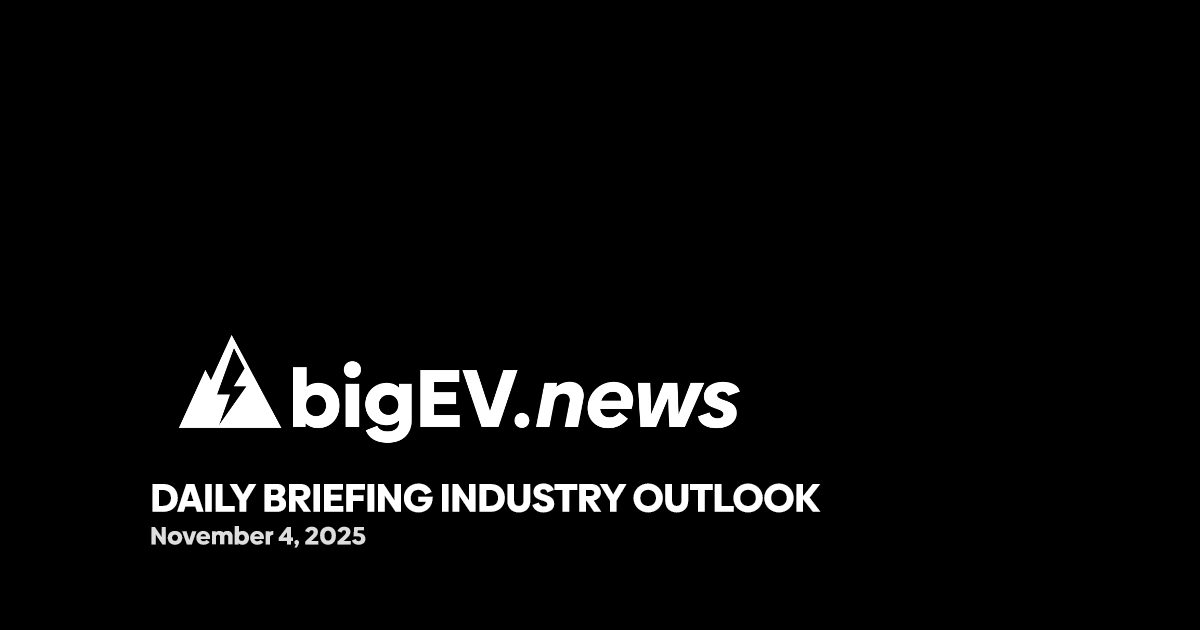Surging power demand, regulatory uncertainty, and breakthrough innovations are redrawing the competitive map for clean energy, automation, and advanced mobility.
At a glance – The past 24 hours have seen global clean technology and electrification sectors roiled by a combination of surging demand, shifting policy signals, and high-profile technology launches. The US market opened with heightened volatility as investors reacted to the latest dismantling of the Inflation Reduction Act’s core incentives, prompting a sharp selloff in solar and wind equities. Meanwhile, global energy investment is projected to reach $2.2 trillion in 2025, with China and India accelerating renewables, storage, and electrification to reduce import reliance and secure industrial leadership. Data center expansion for generative AI and electrified manufacturing is driving unprecedented power demand, with Deloitte estimating US data centers alone will require an additional 44 GW by 2030. This surge is outpacing renewable supply, intensifying competition among cleantech, AI, and carbon industries to secure 24/7 clean energy. The resilience imperative is also gaining traction, as climate adaptation technologies move from niche to mainstream, fueled by escalating extreme weather and insurance retreat from high-risk zones.
Technology advance – In a major product milestone, ABB unveiled its new Terra 420 ultra-fast EV charger in Oslo, capable of delivering 420 kW and targeting commercial fleet depots and highway corridors. The charger integrates AI-driven load management and is designed for seamless interoperability with both legacy and next-generation electric trucks. In the robotics and automation space, Boston Dynamics announced the commercial deployment of its Stretch 2.0 robot at Maersk’s Rotterdam logistics hub, featuring advanced machine vision and adaptive gripper technology for high-throughput container unloading. Marine technology saw a leap forward as CorPower Ocean’s C4 wave energy converter began grid-connected trials off Portugal, aiming to validate utility-scale marine renewables. In advanced defense, Anduril Industries secured a US Navy contract to deploy its Ghost 5 autonomous underwater vehicles for persistent maritime surveillance, marking a significant dual-use technology crossover. EVTOL innovation accelerated as Joby Aviation completed its first piloted test flight of the S4 air taxi in Tokyo airspace, a key step toward commercial launch ahead of the 2026 Osaka Expo.
Partnerships – Siemens Energy and Enphase Energy announced a strategic alliance to co-develop modular microgrid solutions for critical infrastructure and disaster response, leveraging Enphase’s IQ8 microinverter platform and Siemens’ grid automation expertise. The partnership targets US municipalities and utilities facing grid resilience challenges from wildfires and hurricanes, with pilot deployments slated for California and Florida in Q1 2026. In the battery sector, CATL and Stellantis revealed a joint venture to build a $4.3 billion sodium-ion battery plant in Spain, aiming to diversify supply chains and reduce lithium dependency for European EVs. On the AI front, Microsoft and Schneider Electric launched a global initiative to integrate generative AI into building energy management systems, promising up to 30% efficiency gains for commercial real estate portfolios. In marine renewables, Ørsted and Mitsubishi Heavy Industries formalized a collaboration to co-develop floating offshore wind platforms for deepwater sites in Japan, targeting 2 GW of capacity by 2030. Finally, in high-efficiency motors, Nidec and Honeywell signed an MoU to co-develop ultra-compact electric propulsion systems for urban air mobility vehicles, with prototypes expected in 2026.
Acquisitions/expansions – Tesla announced the $1.1 billion acquisition of Redwood Materials’ European battery recycling operations, expanding its closed-loop supply chain and securing critical raw materials for its Berlin Gigafactory. In distributed energy, Sunrun completed its $650 million purchase of Span.IO, integrating Span’s smart panel technology to enhance home energy automation and grid services. Rivian disclosed a $700 million investment to double capacity at its Illinois plant, adding a dedicated line for commercial electric delivery vans for Amazon’s European logistics network. In the marine sector, Wärtsilä finalized the acquisition of Norway’s Clean Marine, a leader in hybrid electric propulsion for ferries and offshore vessels, strengthening its position in green shipping. Meanwhile, in the advanced defense arena, Palantir Technologies acquired UK-based QinetiQ’s AI-enabled sensor fusion business for $420 million, aiming to bolster its dual-use technology portfolio for NATO clients. In the energy storage space, Fluence Energy announced a $350 million expansion of its Texas gigafactory, citing surging demand for grid-scale battery systems amid ERCOT’s record peak loads.
Regulatory/policy – The US Department of Commerce imposed new tariffs of up to 35% on Chinese solar modules and battery imports, citing unfair trade practices and national security concerns. The move triggered immediate protests from the Solar Energy Industries Association, warning of project delays and higher costs for US developers. In Europe, the European Commission approved a €2.1 billion state aid package for hydrogen infrastructure buildout in Germany, fast-tracking electrolyzer deployment and green hydrogen corridors for heavy industry. India’s Ministry of Power issued new guidelines mandating 25% renewable energy procurement for all data centers by 2027, accelerating the country’s clean grid transition. In Japan, the Ministry of Land, Infrastructure, Transport and Tourism granted type certification to SkyDrive’s SD-05 eVTOL, clearing the way for commercial air taxi operations in urban centers. Meanwhile, the United Nations International Maritime Organization adopted stricter emissions standards for shipping, requiring a 40% reduction in carbon intensity by 2030, spurring investment in green propulsion and alternative fuels.
Finance/business – On Wall Street, clean tech indices opened sharply lower, with the WilderHill Clean Energy Index down 3.8% pre-market on US policy uncertainty and tariff escalation. In contrast, shares of ABB surged 5% in Zurich following the Terra 420 charger launch and strong Q3 earnings guidance. CATL’s Hong Kong-listed shares rose 4% on news of the Stellantis JV, while Siemens Energy gained 2% in Frankfurt after the Enphase partnership announcement. In the US, Sunrun’s acquisition of Span.IO was met with cautious optimism, as analysts debated the long-term profitability of integrated home energy platforms. In the marine sector, Wärtsilä’s stock climbed 3% on Clean Marine synergies, while Palantir’s acquisition of QinetiQ’s AI business drew positive coverage from defense analysts. Commodity markets saw lithium prices stabilize after weeks of volatility, while nickel and cobalt futures slipped on oversupply concerns. Investor sentiment remains highly sensitive to regulatory signals, raw material supply chain disruptions, and the pace of technology adoption across electrification, automation, and resilience-driven sectors.
Sources: Deloitte Insights, Cleantech.com, World Economic Forum, ABB press release, Boston Dynamics newsroom, CorPower Ocean media, Anduril Industries press release, Joby Aviation investor update, Siemens Energy newsroom, CATL investor relations, Microsoft press center, Ørsted corporate news, Tesla investor relations, Sunrun press release, Rivian media, Wärtsilä newsroom, Palantir Technologies press release, Fluence Energy investor update, US Department of Commerce, European Commission, India Ministry of Power, Japan MLIT, UN IMO, Bloomberg Markets.








